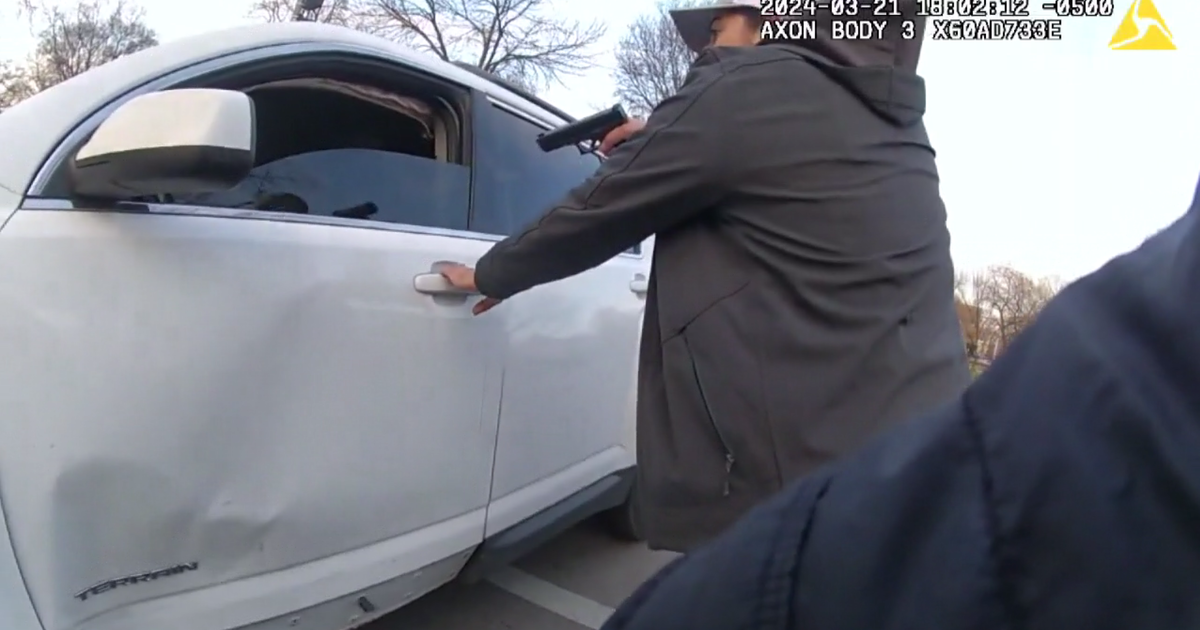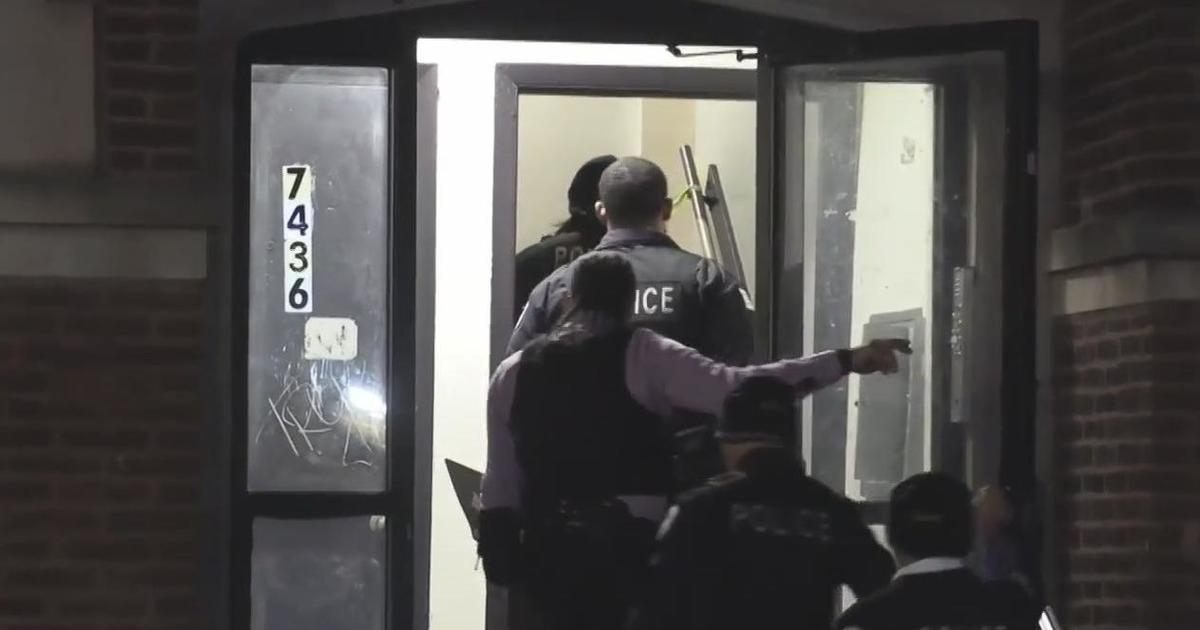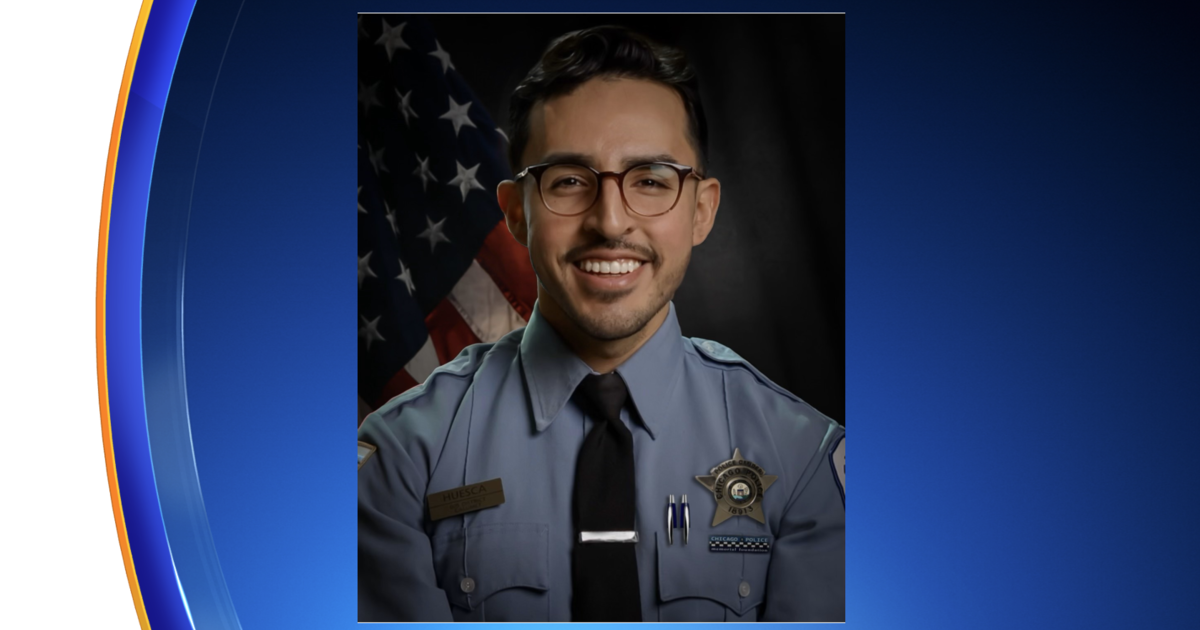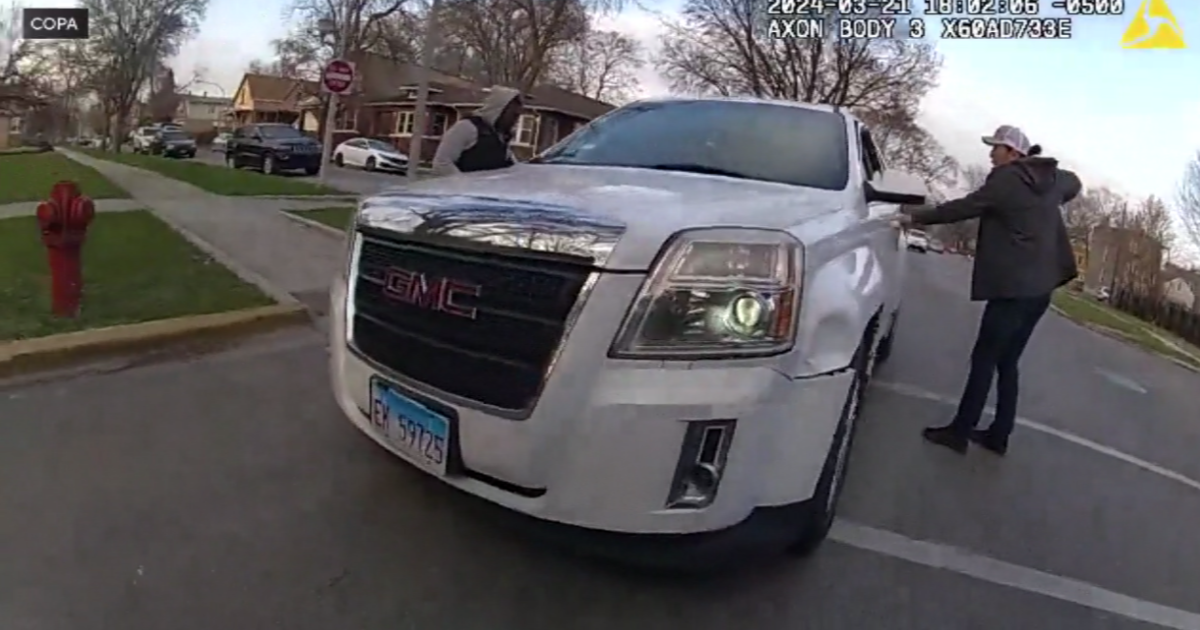Emanuel: "I'm Sorry" For Laquan McDonald Shooting
CHICAGO (CBS) -- Mayor Rahm Emanuel apologized Wednesday for the fatal police shooting of Laquan McDonald, which has become the focus of a police misconduct scandal that has proved to be the most serious crisis of his tenure, and has prompted a federal probe of the Chicago Police Department.
"What happened on Oct. 20, 2014, should never have happened. Supervision and leadership in the Police Department and the oversight agencies that were in place failed, and that has to change," Emanuel said, referring to the night McDonald was shot and killed by Officer Jason Van Dyke.
TIMELINE: Key moments surrounding Chicago Police Department controversy.
PROTESTS: Demonstrators hit streets after speech, demanding mayor resign.
"I am the mayor. As I said the other day, I own it. I take responsibility for what happened, because it happened on my watch, and if we're going to fix it, I want you to understand it's my responsibility with you, but if we're also going to begin the healing process, the first step is my step, and I'm sorry," he added.
Weakened and embarrassed by a string of police shootings caught on video, an apologetic mayor delivered a special address to the City Council, describing how he plans to lead the city and Police Department forward from here.
The mayor said he has "reflected deeply" on McDonald's shooting, and he said although McDonald was armed with a knife and agitated, it was a "routine" situation police should have been able to contain without taking a life.
"The majority of our officers do their job professionally every day, but 30 seconds after Officer Jason Van Dyke arrived, it was anything but routine or by the book. Sixteen shots were fired. A young man from Chicago died in the streets of Chicago. Nothing, nothing can excuse what happened to Laquan McDonald," Emanuel said.
Podcast
Van Dyke has since been charged with murder. Protesters angered over the video of the shooting have demanded Emanuel and Cook County State's Attorney Anita Alvarez resign over their handling of the case.
Van Dyke was not charged for more than a year after the shooting, and not until just before dashboard camera video of the shooting was about to be made public. The Emanuel administration fought for more than a year to keep the video under wraps, arguing that releasing the video could compromise the investigation, but a Cook County judge ordered the video be made public, and the city backed down.
"I recognize that a prolonged investigation served to undermine public trust, and every day that we held on to the video contributed to the public's distrust, and that needs to change," Emanuel said.
Emanuel also touched on the mistrust many minorities feel towards the police, because of their own experiences with officers.
"I want to be honest. When an African-American mother or father or grandparent feel it is necessary to train their sons and daughters to behave with extreme caution when they are pulled over by police, to have both hands on the wheel and visible, what does that say? We have a trust problem," "It is not something I would ever tell my children. That's unacceptable," he said.
The mayor said the city "is facing a defining moment on the issues of crime and policing -- and the even larger issues of truth, justice and race."
"We can either be defined by what we have failed to do or what we choose to do," Emanuel said.
While Emanuel provided few specifics for changes that need to be made at the Police Department, he said the new superintendent who will replace the recently dismissed Garry McCarthy must confront "the problems at the very heart of the policing profession."
"The problem is sometimes referred to as the thin blue line. The problem is other times referred to as the code of silence. It is this tendency to ignore. It is a tendency to deny. It is a tendency in some cases to cover up the bad actions of a colleague or colleagues. No officer should be allowed to behave as if they are above the law just because they are responsible for upholding the law. Permitting and protecting even the smallest acts of abuse by a tiny fraction of our officers leads to a culture where extreme acts of abuse are more likely, just like with what happened to Laquan McDonald," he said.
"We cannot ask citizens in crime-ravaged neighborhoods to break the code of silence if we continue to allow a code of silence to exist within our own police department. We cannot ask young men to respect officers if officers do not respect them in kind. Respect must be earned. Respect is a two-way street," he added.
Near the end of his speech, the mayor seemed close to tears, choking up as he recalled a recent lunch he had this weekend with a group of young men who had past run-ins with the law, but were trying to turn their lives around.
"One young man asked me a simple question that gets to the core of what we're talking about. He said 'Do you think the police would ever treat you the way they treat me?' And the answer is no, and that is wrong, and that has to change in this city. That has to come to an end and end now. No citizen is a second-class citizen in the city of Chicago. If my children are treated one way, every child is treated the same way," he said.
After the speech, several aldermen faulted the mayor for not realizing much sooner the deep-seated problems within the Chicago Police Department regarding ineffective discipline and use of excessive force.
"I think there's a tale of two worlds and two cities, and so me growing up as a young black man, yes I would get pulled over by the police. He has never experienced that type of thing, and so to him it is foreign, and until you see it on videotape, and it can't be refuted, and you've heard it over and over and over again, I think now he gets it," said Ald. Howard Brookins (21st).
Podcast
Aldermen also cited the power of the Laquan McDonald video for finally forcing the possibility of real reform.
"If we didn't have social media, we wouldn't be talking about the reform and the change that we're talking about right now," said Ald. Anthony Beale (9th). "If we didn't have the video, it would be the same old story, it would be the same thing where people are just kicking and screaming, saying something happened, and it would constantly be getting covered up."
Ald. Scott Waguespack (32nd) said the transparency needed at the Police Department must go much further; all the way up to the mayor's office.
"I think this goes back to not just the Laquan McDonald video, but a whole style and approach to government that's been secret, pushing back whenever the public wants information, and that's got to change as well," he said.
Despite those misgivings, most aldermen also credited Emanuel for a new level of candor, and said they believe – combined with a Justice Department investigation into the Police Department's policies and practices regarding the use of force – a door finally has been opened for meaningful changes at CPD.



